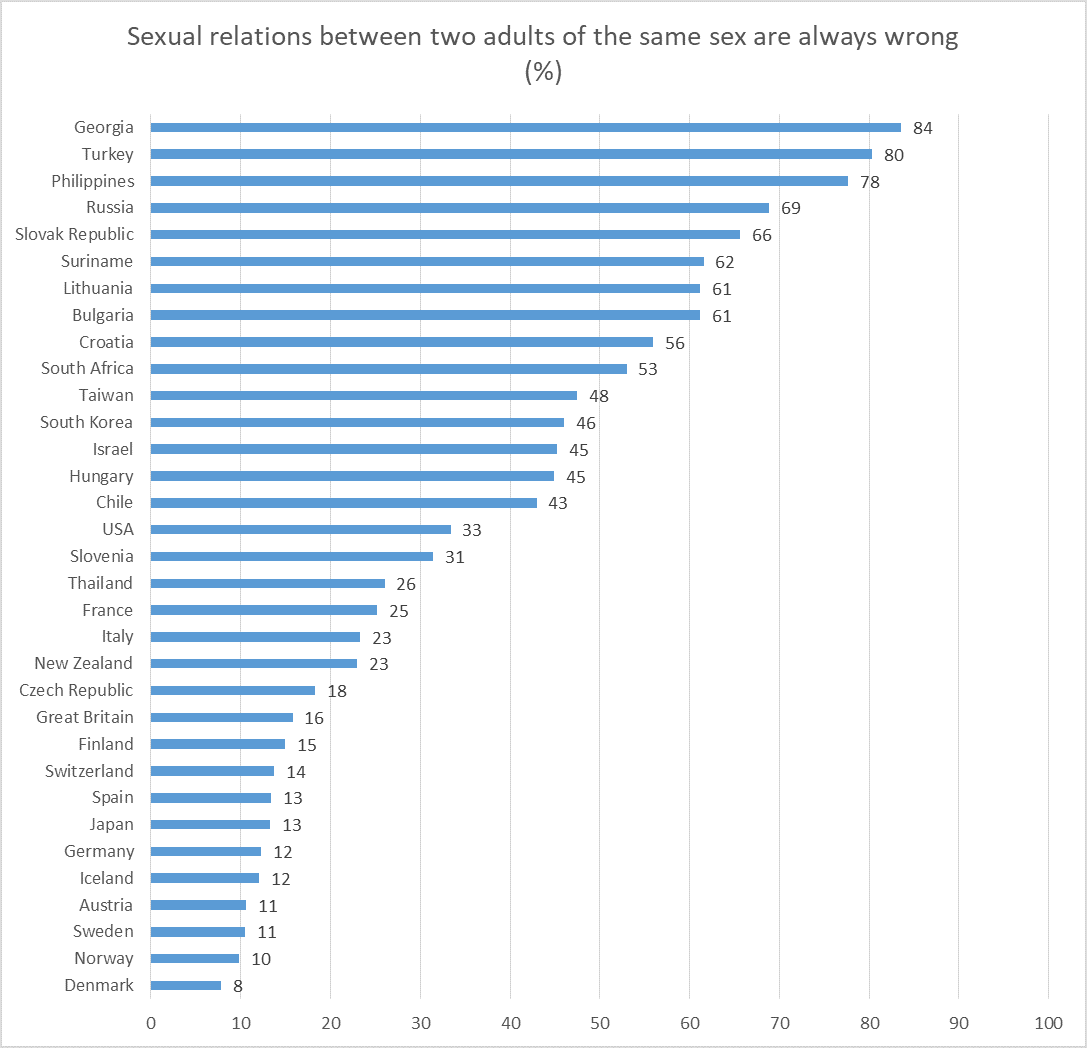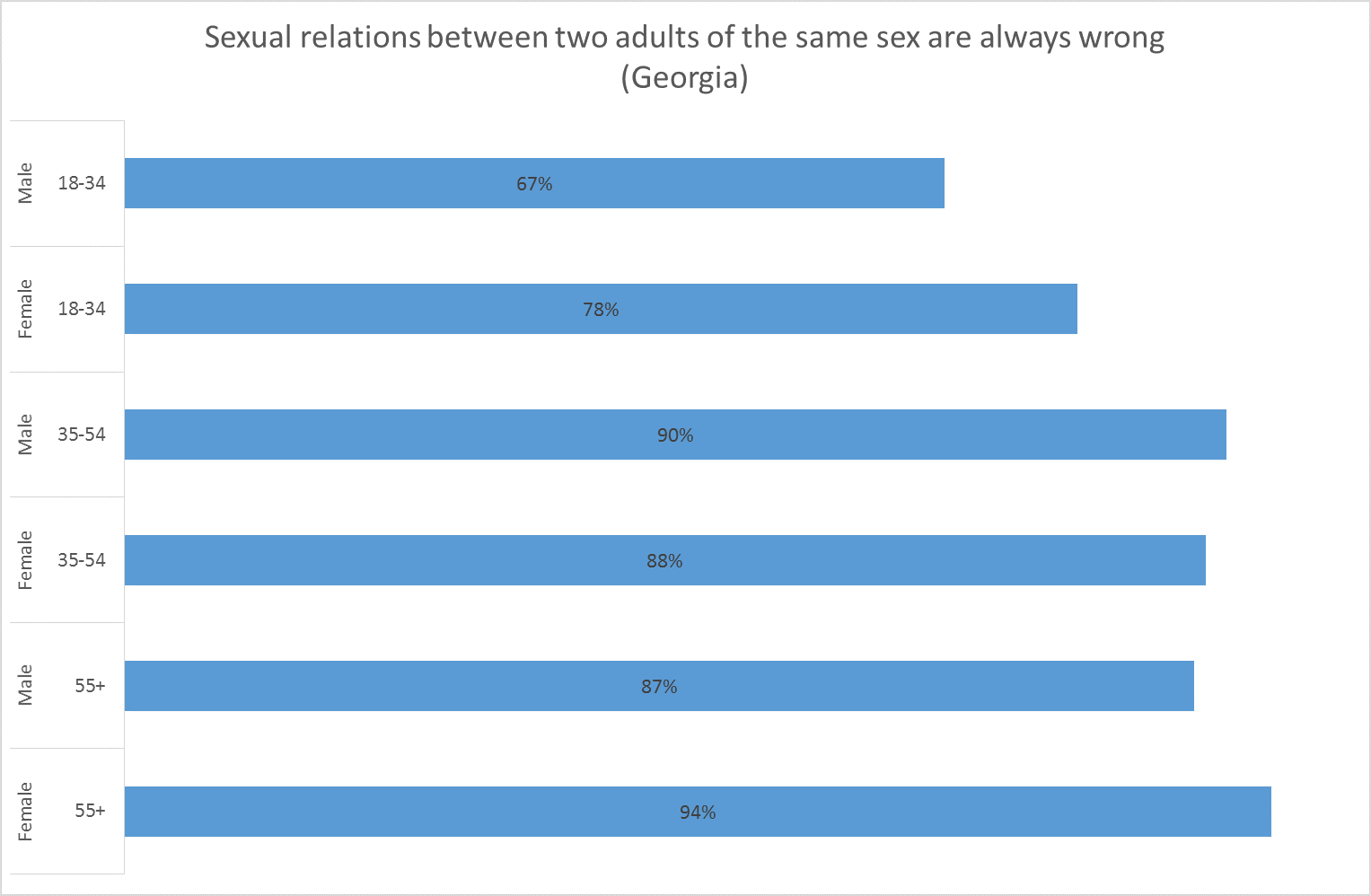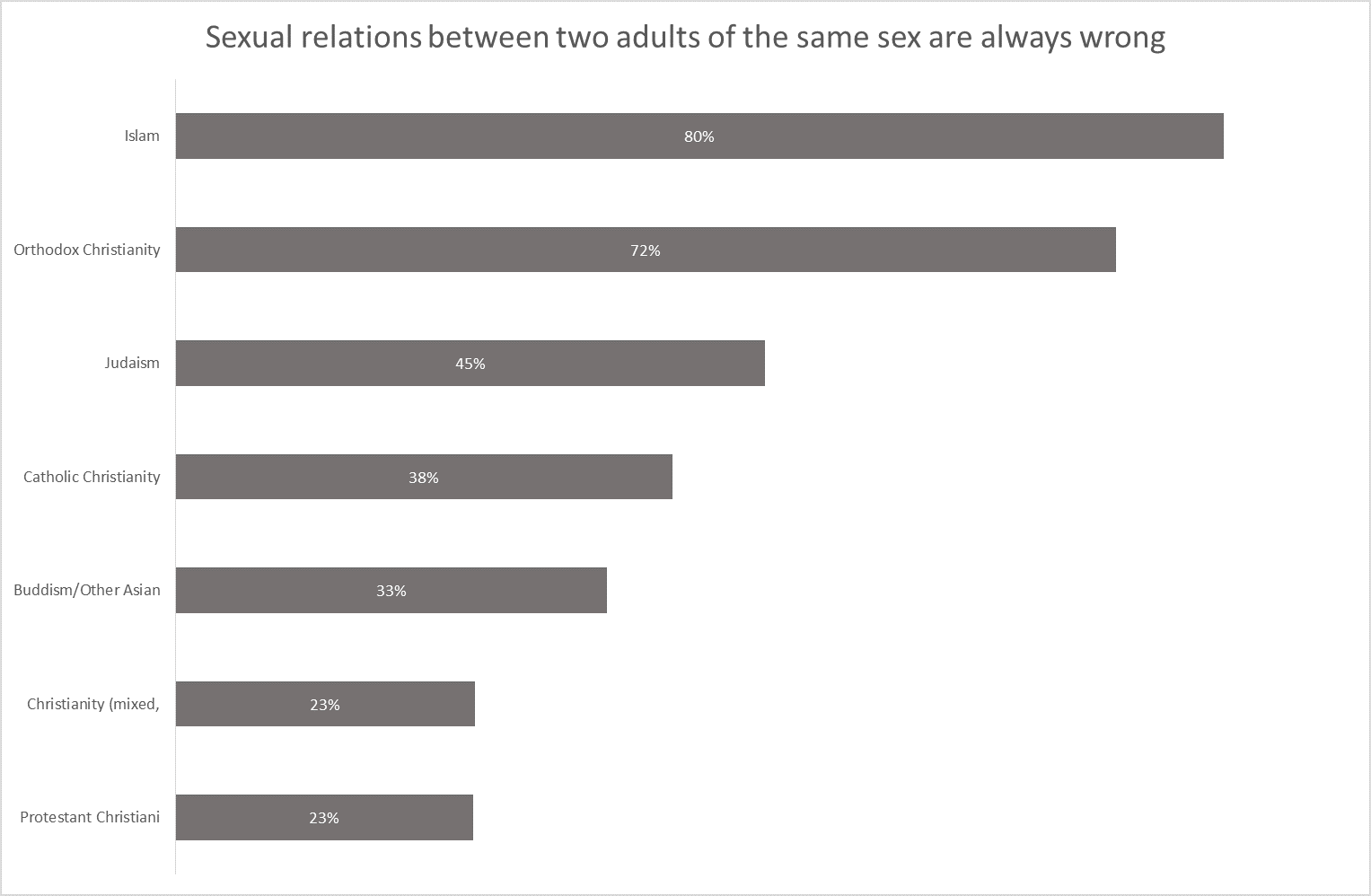Recent events in Georgia have once again highlighted the extent of homophobia in Georgia, and survey data suggests that the country may be the most homophobic on the continent.
On 5 July, a homophobic riot took place in Tbilisi. While the riot is a tragedy, it also reflects the fact that Georgia is the most homophobic in Europe for which data is available on the International Social Survey programme (ISSP) survey.
Given the participation of priests in the riot, one might expect more religious people to be more homophobic. However, the data suggests that homophobia is prevalent throughout society and how important religion is in someone’s life is not correlated with homophobic attitudes.
The ISSP survey asked respondents in 33 countries, mainly in Europe, whether sexual relations between two adults of the same sex are always wrong. In Georgia, 84% said it was always wrong, compared with an average of only 37% among all countries.
The next closest country on the survey was Turkey, with 80% of the public there reporting that same-sex sexual relations were always wrong. By comparison, only 69% of Russians reported the same. In Hungary, which the European Union is currently suing for passing homophobic legislation, roughly half as many (45%) people said it was always wrong. Neighbouring Armenia and Azerbaijan were not part of the survey.

The data also varies by age and sex. Young people tended to be less homophobic than older people and women tended to be more homophobic than men, with the exception of men and women in the 35–54 age range, who were equally homophobic.

In the most recent riots, priests played an active role. This too is perhaps unsurprising given that priests also engaged in violence in the 2013 International Day against Homophobia and Transphobia homophobic riots. Further, the church established the ‘Day of Family Purity’ in the years following the 2013 riots to prevent events marking International Day Against Homophobia from being held.
In this regard, the data tends to suggest that Orthodox Christian countries are more homophobic than others. The only exception to this pattern was that the one Muslim country in the dataset, Turkey, was more homophobic than Orthodox countries on average.

While Orthodox countries appeared to be more homophobic overall than countries where other religions predominate, how strongly someone evaluates the importance of religion in their lives was not correlated with whether or not they hold a homophobic view. This suggests that religious belief is not necessarily the issue, rather, that generalised homophobia in society is.
The riots witnessed on 5 July show Georgia has a problem with homophobia, to put it lightly. The data suggests that it is among the worst in Europe. While the church instigated violence, individual religiosity does not appear to be the culprit in whether or not someone is homophobic.
The data used in this article are available here. The views presented in this article are the authors’ alone and do not necessarily reflect the views of CRRC Georgia or any related entity.











